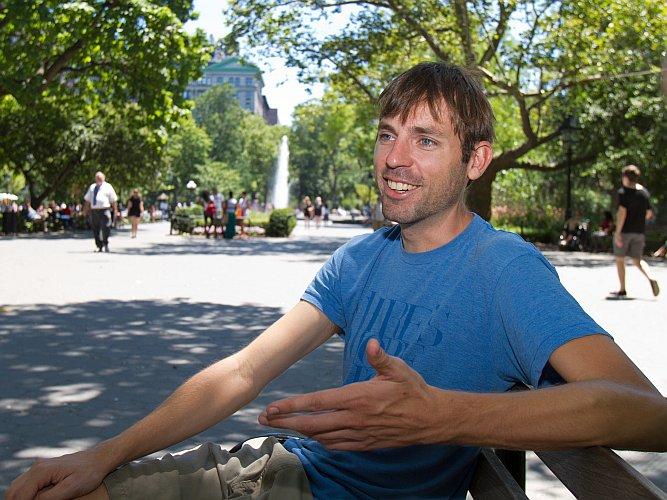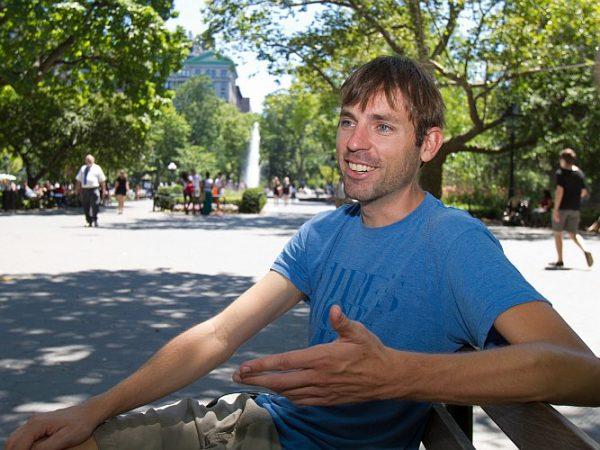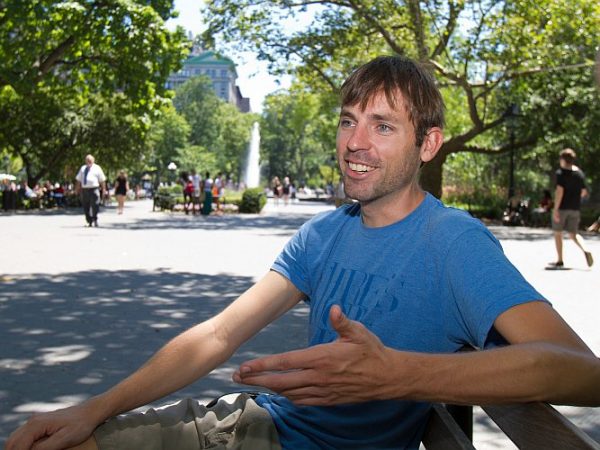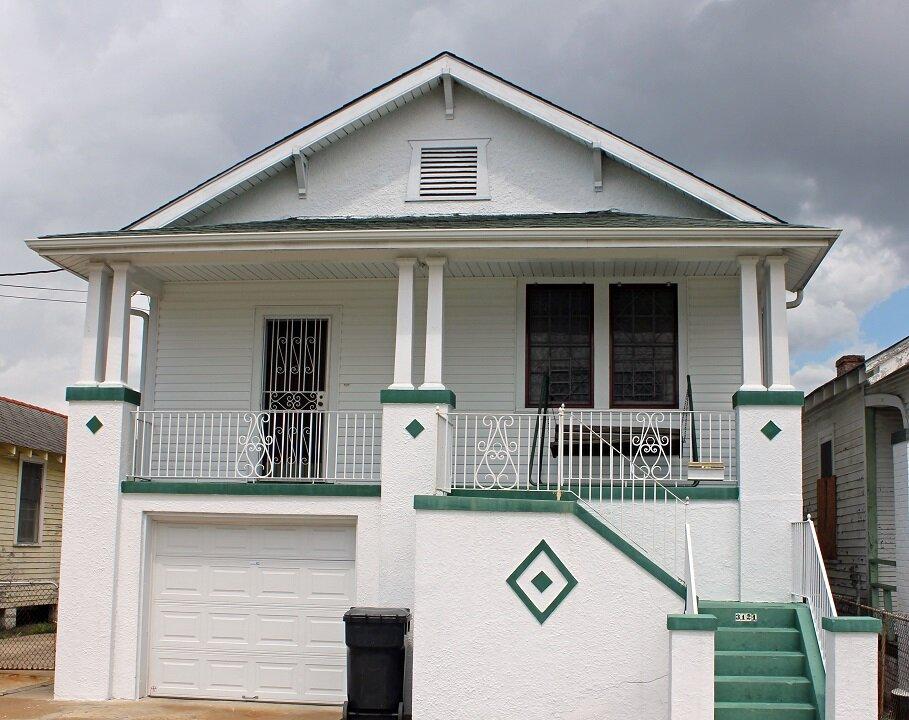NEW YORK—If you run into a man holding a jar of parasitic worms in Washington Square Park asking for a donation, don’t be alarmed. It’s just Aaron Jackson. He is trying to save all the children in Haiti—and he could really use your help.
Jackson is soliciting donations for Planting Peace, the non-profit he co-founded in 2004, which raises money for de-worming medication for children in Haiti and around the globe. As Jackson tells those who stop and listen to his pitch, parasitic worms grow in the bellies of kids in poverty-stricken places like Haiti, eating up to 20 percent of the child’s nutrition, leaving them anemic and lethargic.
Jackson has seen the effect of the medication on these children in as little as 24 hours after taking it, and it is that reaction that drives him to raise money. “You see kids awaken, right away. They come to life. I say to myself, ‘Wow that only cost a penny or 1.5 cents,’” Jackson said. “For one coffee from Starbucks, I could de-worm 333 kids. It really makes you think.”
Jackson’s journey to Haiti’s children started when he was a teenager living by the finely manicured grass of Sandestin golf resort in Miramar Beach, Fla. His stepfather was a pro-golfer and his grandfather a resort developer.
Jackson started playing golf at age 13 and was hooked from the moment he picked up the clubs, often skipping school to get in 36 holes of golf six or seven days a week.
“I thought about golf 24 hours a day, 7 days a week. It was my goal to become a professional golfer,” Jackson said. He wanted to play for a charity or for the poor.
Instead, at age 17, he ran away from home and traveled the country helping the homeless along the way, putting them up in hotel rooms, buying them clothes, and feeding them. Jackson said it was his first effort in putting his desire to help into action.
Helping Haiti
In the early 2000s Jackson was living in Miami and working with Homeless Voice, an organization set up to assist homeless people become self-reliant.
While driving one day, he heard a radio report about a famine in Haiti. Through his work with Homeless Voice he had access to a food bank and knew he could purchase one ton of food for $300.
“I was extremely naive, but to me, it was simple mathematics. One ton of food for $300, everybody should be jumping on this,” Jackson said laughing.
He sent out approximately 1,000 letters to churches around the nation asking them to sponsor one ton of food, hoping he could get 100 tons sponsored.
One church responded, offering to sponsor two tons. “If they would not have sent that money, it is possible I would have given up, maybe not altogether, but moved on to something else,” Jackson said.
With a $600 check in hand, he knew he had to live up to his end of the bargain and deliver the food to Haiti. Jackson began to research how to transport the food, but soon found out why no one was already doing it—customs fees were in the tens of thousands of dollars.
Jackson bought medicine with the money instead and enlisted the help of family friend Dr. Chuck Presti to administer the medication. With financial support from the Homeless Voice, Jackson donated $1,500 to start a feeding program.
Jackson and his small group went to Cité Soleil, the largest slum in Port au Prince, for three days. Jackson said his group was often asked for extra money and was even charged $1,500 for a 50-pound bag of rice and a 50-pound bag of beans.
Jackson was put off by this but before long met up with John Dieubon, a local man who had translated for the group. The two were in the break room one afternoon and began discussing Dieubon’s plan for opening up an education center for children.
The two instantly clicked.
On Jackson’s final day Dieubon had to leave early, but thanked Jackson for helping his people.
At dinner that evening, Jackson told the group how impressed he was with Dieubon but had forgotten to get his contact information. Serendipitously, not 10 minutes later, Jackson looked up to see Dieubon at a nearby table. He rushed over and they exchanged information.
Planting Peace
After a short stint in New York City, Jackson was ready to open his own charity. He called Dieubon; they co-founded the non-profit Planting Peace, and their first project was building an orphanage in Haiti. In Miami, Jackson ran across a wealthy Haitian who was in the U.S. on asylum. He donated land to Jackson for the school in Saint-Louis-du-Sud by Les Cayes.







